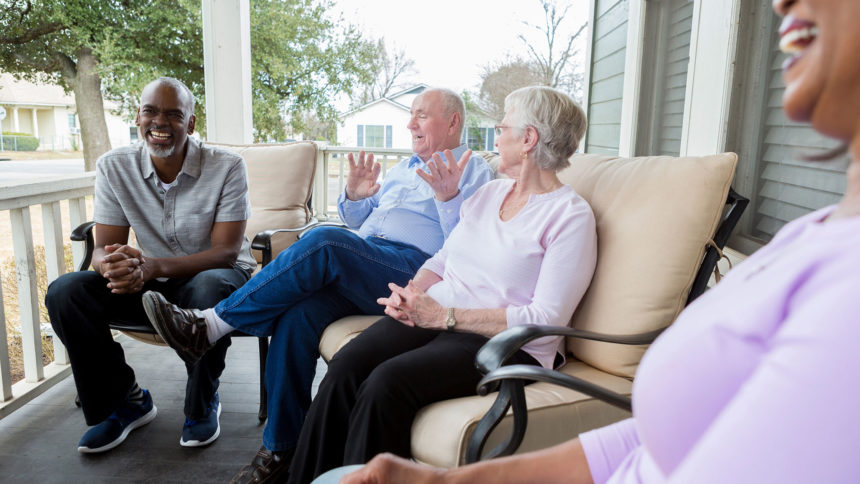
Social engagement is known to be tied with an increased risk of dementia. A recent study has shown that it may be a mark of how resilient – or vulnerable – someone is to cognitive decline.
Investigators from Brigham and Women’s Hospital evaluated 217 men and women enrolled in the Harvard Aging Brain Study, which looks for early neurobiological and clinical signs of Alzheimer’s disease. Some were found to have higher brain amyloid-β, a marker of Alzheimer’s. The participants, aged 63 to 89, were questioned about social engagement such as spending time with friends and family and doing volunteer work, and measured for cognitive performance at the study’s start and three years later.
Among cognitively normal older adults with high levels of amyloid-β, those who started off with lower social engagement showed steeper cognitive decline than those who were more engaged. This result was not found in participants with low amyloid-β, the researchers said.
“Social engagement and cognitive function are related to one another and appear to decline together,” said senior author Nancy Donovan, M.D. “This means that social engagement may be an important marker of resilience or vulnerability in older adults at risk of cognitive impairment.”
Future studies with longer follow-up periods may help further untangle the complex mechanisms of Alzheimer’s disease progression, Donovan wrote. “We want to understand the breadth of this issue in older people and how to intervene to protect high-risk individuals and preserve their health and well-being,” she concluded.
The research was published in The American Journal of Geriatric Psychiatry.




